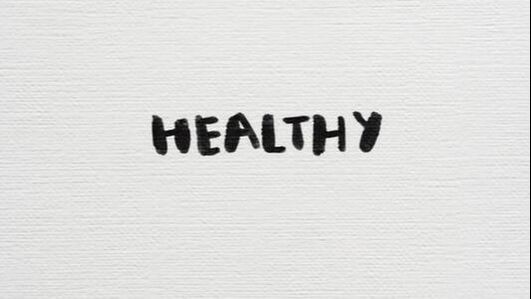I'm not one to promote "dieting", ever.
Even if weight does need to be balanced for health. In my experience encouraging lifestyle changes and addressing trigger connections with negative food habits, permanently improves eating habits by requiring a thoughtful approach in which you Reflect, Replace, and Reinforce the positive new habits that replace those that no longer serve you.
Here's some of the simple but effective strategies I use with clients when they want to start but don't exactly know where.
The Three Rs of Healthy Habits
- REFLECT on all of your specific eating habits, both bad and good; and, your common triggers for unhealthy eating.
- REPLACE your unhealthy eating habits with healthier ones.
- REINFORCE your new, healthier eating habits.
A Process for Improving Healthier Eating Habits
Create a list of your eating habits. Keeping a food diary for a few days is crucial. you will write down everything you eat and the time of day you ate it, will help you uncover your habits. You would be surprised how many people tell me they thought they knew what negative triggers might be associated until they reviewed the diary. Make sure to keep it unadulterated, this is for you! Discover your baseline and why bad habits happen.
For example, you might discover that you always seek a sweet snack to get you through the mid-afternoon energy slump. Using the Food & Mood Tracker to help start recognizing patterns. It's good to note how you were feeling when you decided to eat, especially if you were eating when not hungry. Were you tired? Stressed out?
Highlight the habits on your list that may be leading you to unhealthy eating habit.
- Eating too fast and not connecting with your food
- Always cleaning your plate, because your parents told you too right?
- Eating when not hungry but thinking about a stressful situation
- Eating while standing up (may lead to eating mindlessly or too quickly)
- Always eating dessert
- Skipping meals (or maybe just breakfast)
Create a list of "cues" by reviewing your food diary to become more mindful of when and where you're "triggered" to eat for reasons other than hunger. Note how you are typically feeling at those times. Often an environmental "cue", or a particular emotional state, is what encourages eating for non-hunger reasons.
Common triggers for eating when not hungry are:
- Thirst
- Emotionally tied triggers
- Unplanned meals (thinking of what's for dinner when you're already hungry)
- Bad Habit enablers ("lets just grab drive through")
Noting the common cues might help you assess what needs to change.
Here are more ideas to help you replace unhealthy habits:
- Drink enough water, people often mistake thirst cues with hunger.
- Plan meals ahead of time to ensure that you eat a healthy well-balanced meal.
- Eat more slowly. turn off the phone, TV, or anything destreacting. Connect with your food, the nourishment and building block of you..
- Eat only when you're truly hungry instead of when you are tired, anxious, or feeling an emotion besides hunger. If you find yourself eating when you are experiencing an emotion besides hunger, such as boredom or anxiety, try to find a non-eating activity to do instead. You may find a quick walk or phone call with a friend helps you feel better.
- Reinforce your new, healthy habits and be patient with yourself. Habits take time to develop. It doesn't happen overnight. When you do find yourself engaging in an unhealthy habit, stop as quickly as possible and ask yourself: Why do I do this? When did I start doing this? What changes do I need to make? Be careful not to berate yourself or think that one mistake "blows" a whole day's worth of healthy habits. You can do it! And yes, cake on a Sunday morning with friends or drive thru happens, and in this life if definitely should! it is the other 90% of the time you are making choices that counts!
- Creating a mindset of abundance will allow you to say no to unhealthy treats, knowing that there will always be more, there is always enough, and you my friend are fabulous and enough!
It just takes one small change at a time to create a big healthy lifestyle!
